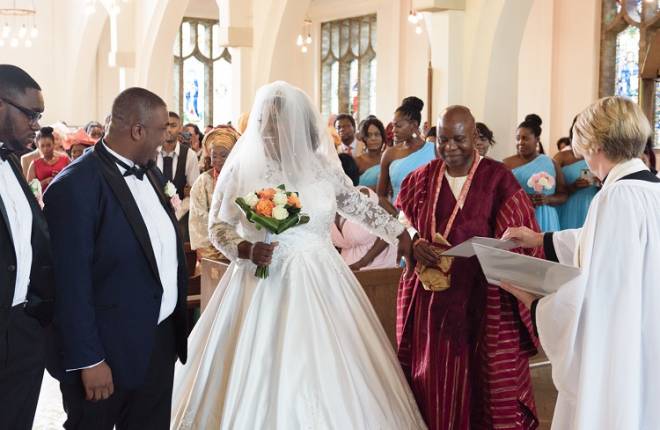

Can you get married in a church if you’ve been divorced? It’s a question many people ask themselves each year. But some are still skeptical, thinking the answer is “No.” Is it possible to have your marriage sealed by God even if your last one was filled with tragedy? Keep reading to find out!
You may possibly be contemplating getting married in a church if you’ve been divorced. You must keep in mind that many churches do not allow divorcees to marry within the institution. I’m going to discuss some insights related to this issue right now.
Yes, it is possible to get married in a church if you’ve been divorced. Both the Catholic and Protestant church recognize the sacrament of marriage (even when one of the spouses has been divorced). In fact, both churches are quite liberal in allowing people to receive communion after a divorce (or prior to the ceremony).
We get this question a lot and need to provide a definitive answer. You can get married in the church if you’ve been divorced. The easiest way is to talk to the pastor of your church and explain what has happened. Pastors are usually compassionate people who understand that divorce is a reality in today’s marriage.
Yes, you can get married in a church if you’ve been divorced.
Many churches offer weddings to divorced persons. Some churches do not allow divorcees to marry in their church, but there are many that do.
If your church does not allow you to get married there because of your divorce, you may have to look for another place to hold the ceremony. However, many churches will allow divorced people to get married at their church if they have been widowed or if they have been separated from their spouse for more than five years.
Right here on Churchgists, you are privy to a litany of relevant information on marriage after divorce, can you get married in a christian church if you are divorced, can you get married in a methodist church if you are divorced, and so much more. Take out time to visit our Website for more information on similar topics.

Getting a divorce? Will you remarry? Should you? What are the remarriage after divorce statistics? Here is remarriage by the numbers and what we have learned at Bikel Law and share with our divorcing clients.
Your odds of getting remarried are high. While your first thought after a divorce might be “never again,” remarriage after divorce statistics show that “70% of people who get a divorce will wind up getting married once again at some point in their life.”
Your state might have a waiting period. While most states do not have any such restriction on getting remarried, you might live in one of a handful of states that have a waiting period for remarriage after a divorce.
You may need a waiting period. It’s important to avoid rushing into a second marriage after a divorce. You need time to work through the difficult emotions associated with going through a divorce. If you’re wondering how long it may take you to get remarried, of course, everyone is different, but the remarriage after divorce statistics when it comes to the average time to remarry after divorce show that “about half of all people who experience a divorce will remarry within 5 years of a divorce, a figure that is actually down 10% since 1960.”
Talk to your lawyer before remarrying. While there are only a few potential legal restrictions regarding your remarriage, they do exist, and your lawyer can help you identify them. Some divorces have decrees that affect remarriage, so if your new fiancé is also divorced, you need to explore those legal issues. Other issues that affect your second marriage include alimony, child support, custody, and inheritance provisions that can affect the way your estate is distributed to heirs.
Try therapy to avoid a second divorce; If you’re curious about the second marriages divorce rate, roughly “15% of second marriages are over within three years and 25% are over in five years.” Therapy can be the single biggest factor in lowering the second marriage divorce rate.
Stephanie Coontz, author of Marriage, a History: How Love Conquered Marriage and The Way We Never Were; American Families and the Nostalgia Trap was quoted saying, “They need to have some good conversations with each other — and themselves — about what they contributed to the failure of their first marriage and what they saw as problems in their first partner that they would like to avoid the second time around. In other words, the process of re-evaluating, stepping away from the anger, blame, disappointment and self-righteousness that often come with the first emotional responses to divorce. They have to analyze what they need to do differently this time if they want to succeed.”
Think of the children—take it slow. You’ve decided that your heart has healed and you’re ready to find the one…but your children may struggle with a wide range of emotions regarding their parents remarrying. Kids often hold onto hope that their parents will get back together even though this rarely happens. They will need plenty of time to heal and come to terms with the fact that their parents want new partners in their lives.
Give them the time to deal with their emotions and don’t introduce your partners to them unless you are serious about that person’s prospect of being in your life long-term. Meeting new prospective step-parents and then having that person leave their life creates too much of an emotional roller coaster for kids. When you take the relationship slowly, you set yourself, your kids, and your new relationship up for success.
Talk about money and get a prenup this time. In your first marriage, you were probably starry-eyed about the future and didn’t think you needed a prenuptial agreement, but now that you’ve experienced a divorce, you should know the importance of one. This time, don’t be afraid to have the money talk with your new fiancé and let them know that you learned the importance of coming to a mutual agreement about the finances.
Anyone worth spending your life with will be on board with you when it comes to making good financial choices. If someone is uncomfortable with making solid plans and being open with you about finances, that’s a red flag!
Seek stability in your life to prevent a second divorce. Certain lifestyles and lifestyle factors can lead to divorce, especially those that experience instability of schedule or excess stressors. Artists, Navy Seals, high school dropouts, and couples who met in bars all have a higher risk of divorce than average. So do people who have long commutes! Conversely, people with a Bachelor’s degree have a great chance of making it to their tenth anniversary during their second marriage.
So, ask yourself the important question of whether your lifestyle will maximize your remarriage’s chances of going the long haul. If you have a chaotic schedule that involves lots of travel and a long commute, make sure your new partner can handle that pressure. If you have always wanted to go after or finish your degree, take the time to do that now. Investing in yourself is an important way to invest in your remarriage.
Seek commonality on the important stuff in your second marriage. You’ll never find someone who is your mirror image, and not many of us would want that in a partner. But maybe in your first marriage, you compromised on some big topics that ended up contributing to the failure of your marriage.
Look for a new partner that has more in common with you when it comes to major things, like how you want to spend your time, what your ideal home looks like, and what your financial goals are. Statistics show that second divorces are significantly more common if only one partner smokes. This is just one tiny glimpse into how important it is that you are on the same page when it comes to certain things in life.
Men are more likely to get remarried, but maybe not for long. In the 1960s, 70% of divorced men went on to remarry while only 48% of women did. The gap of 22 percentage points reflected a greater social stigma against women who had been divorced, especially those that had children. By 2013, Pew Research Center reported that men’s remarriage rates had dropped to 64% and women’s had risen to 52%. The stigma associated with divorced women is fading away and, in time, it may disappear entirely.
If you’ve been divorced and are considering getting remarried in a church, know that there is hope. There will always be people who have gone through similar situations as yours, and they are willing to help. Find a pastor or church to talk with about your situation, and pursue your dreams of being married again in the eyes of God.